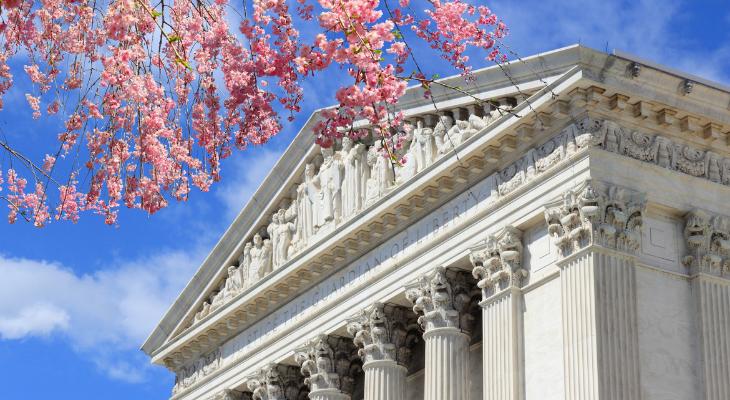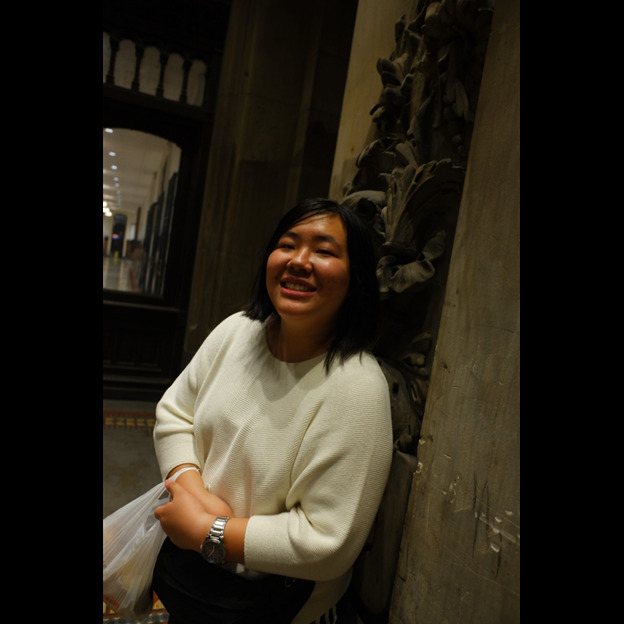A Painful Compromise, and a Prayer, from a Young Christian
March 8, 2022

Why do people think compromise is good? It is because a “give and take” is better than just give. We’re so averse to losing everything that despite the possibility of gaining everything, we compromise. As I read about the latest case regarding LGBTQ anti-discrimination and religious liberty reaching the Supreme Court, I’m reminded of the inherent discomfort of compromise because everything I want this case to reach will never happen.
I was raised conservative Christian, just as the defendant Lorie Smith still is. I’ll be upfront and say that her stance on same-sex marriage is no longer my stance nor the stance of my family. However, I understand what it’s like to live a world that seems to be increasingly hostile to religious beliefs, especially beliefs that take the Bible more literally. Christmas, the birth of the Christian savior, has been capitalized (pun intended) for Amazon and Black Friday sales. I understand what it’s like to have people be confused about why you’re religious or dismiss your religion entirely as a vector of judgement, bigotry, and hatred.
I hope that I am not only able to sympathize with Ms. Smith, but I also hope that she can sympathize with me and the plight of LGBTQ Christians. I’ve written about this before, but I say with confidence that religion, specifically conservative Christianity, has hurt and traumatized me. I am telling the truth when I say that the self-loathing that suffocated my adolescence was motivated by the fact that I felt God hated me. I once asked someone: which came first, the idea that I hated myself or the idea that God hated me. Chicken and egg situation, sadly.
As an LGBTQ Christian, I know no LGBTQ person who has grown up in a conservative, evangelical, unaffirming, whatever you want to call it, environment and not felt that God has hated them. While Leviticus and Paul stones us with phrases such as “abomination” and “detestable,” we have the whole pulpit and choir condemning the person we can’t help but realize reflects in the mirror. It is painful to hate yourself but excruciating to bear the hatred of your entire spiritual home.
When I write today, I write with the intention of compromise. My very identity is what will end up compromising, most likely to the chagrin and anger of many. I write to extend an olive branch to people like Ms. Smith. I believe they are worried that the world’s morals will slip so far from what they believe to be God-ordained. Eventually, they will be in complete opposition to society, alienated, if they don’t feel that now already. That is a fear I know to be paralyzing because that was the same fear I felt growing up evangelical.
I write with the intention of understanding her and the perspective of others with the hope they will begin to understand mine. My compromise is that Ms. Smith should not be forced to design a website celebrating a same-sex wedding.
I’ve thought about this since the Masterpiece Cake Shop, and I’ve reached a conclusion that requires more explaining than this article. However, I present this idea: a wedding celebrates love and a future full of commitment and devotion. However, if someone believed my love was sinful and against their God, then I would not even want them to participate. They can believe what they believe, and I even understand why they do because for a part of my life, I believed that as well.
This compromise will be disheartening to members of the LGBTQ community, but I view love important enough to have anyone involved in the celebration of love to be supportive and understanding. It’s a compromise that I hope one day we’ll no longer have to make.
I write down prayer requests to God in my journal, and without fail, I pray for a few things: good grades, guidance, my friends and family, and always, for people to change their minds about someone like me. The goal for the LGBTQ community should not be to compel people to serve us in violation of their beliefs, but it should be to change their beliefs about us.
Progress is as sanctification: full of setbacks and deviations, so we must hold fast to the hope for something better the next day. Then, like a sunrise that inches up across the horizon, a new dawn breaks where we see each other, gay or straight, Christian or not, as a bit more human and reach a new understanding.
Share
Related Articles
American Civic Life
God, Country and the Golden Rule: A Conversation with Paul D. Miller
American Civic Life
Christian Nationalism is a Popular Topic. But What Does it Mean?
Higher Education
What Does Interfaith Engagement Mean from an Evangelical Perspective?

Alicia Liu
Alicia Liu is a sophomore at Swarthmore College studying mathematics and economics. She’s fascinated by religion, good poetry, and recipes that require little clean up. She enjoys journaling with fountain pens and photography (film and digital). She grew up in central New Jersey.



